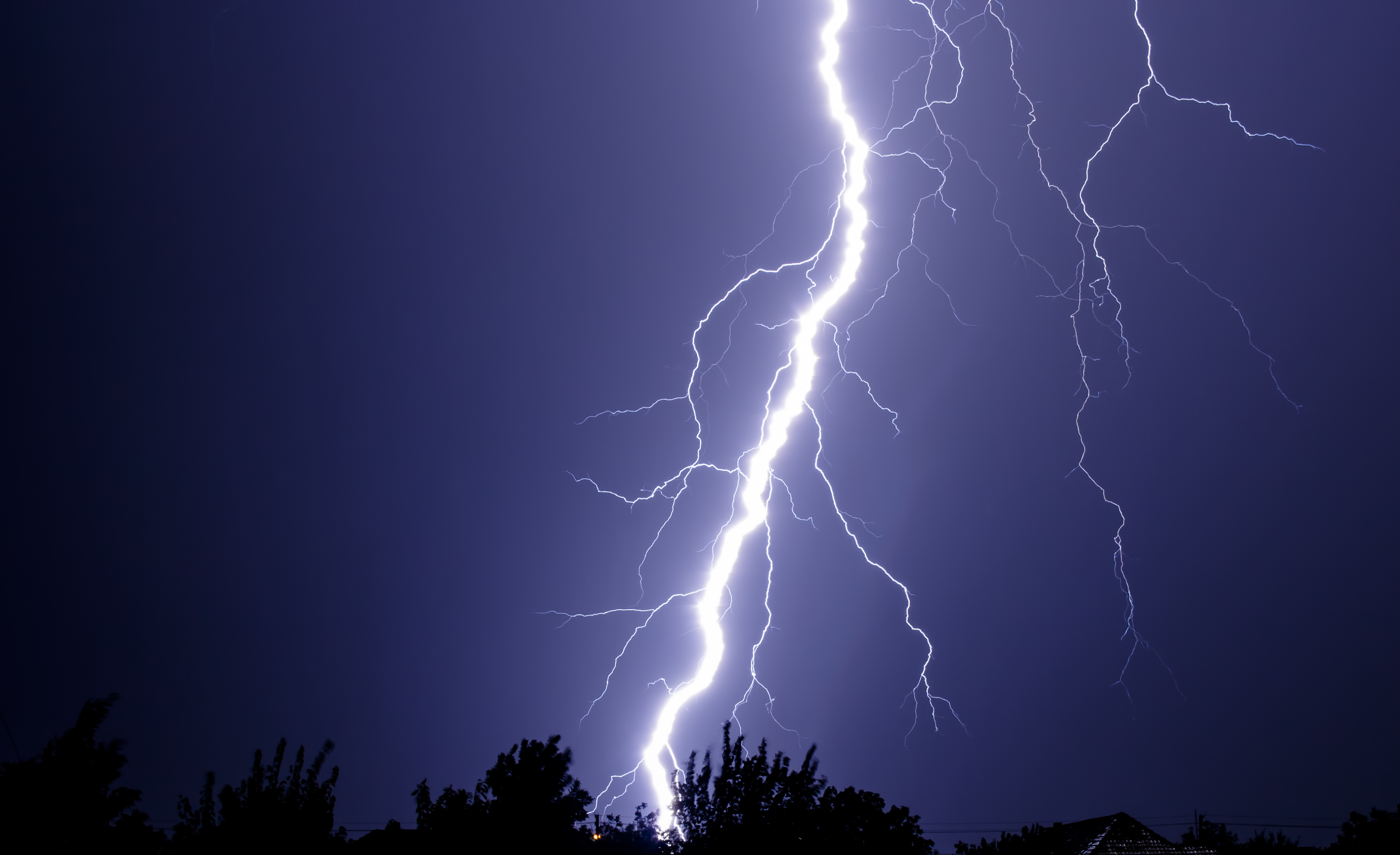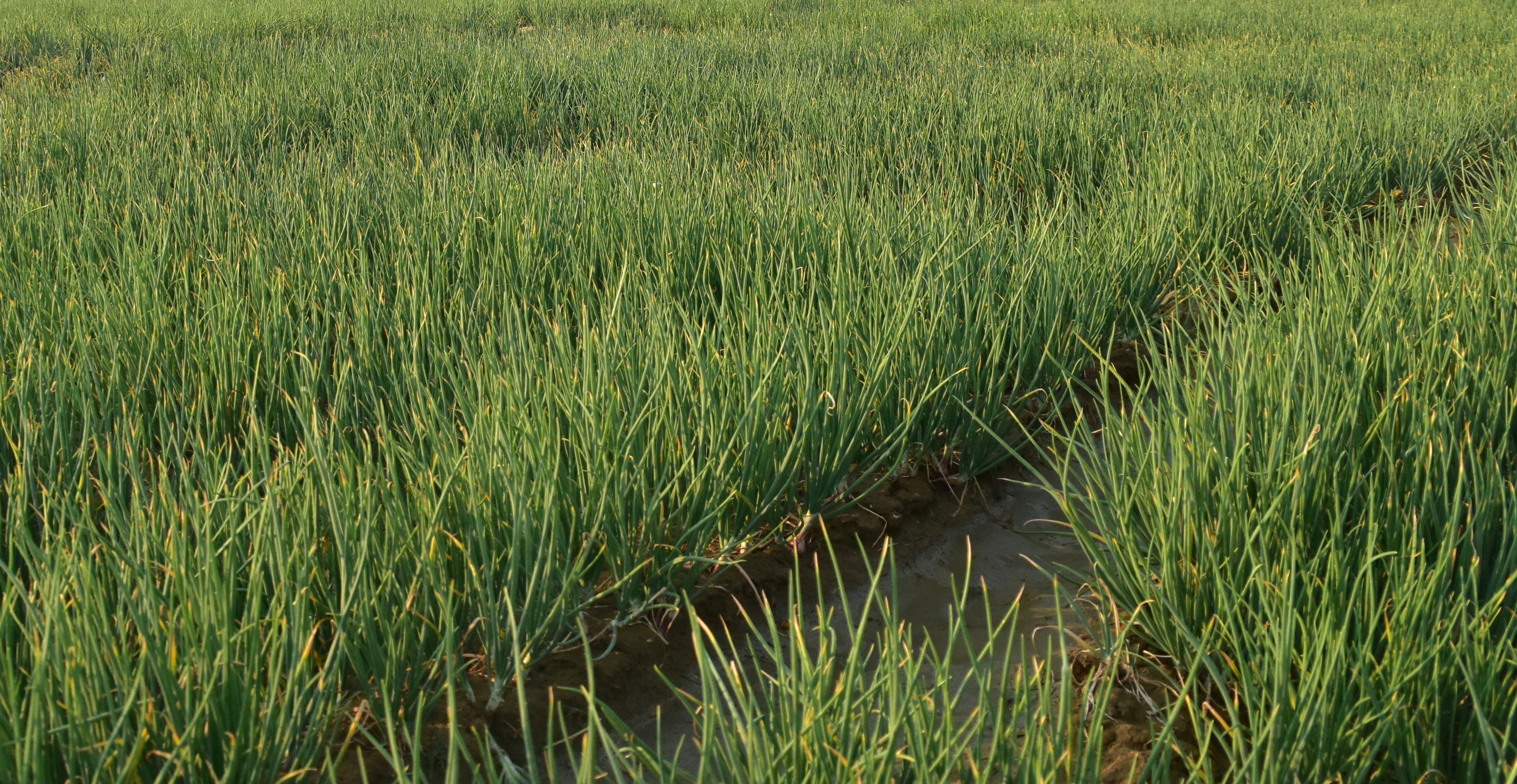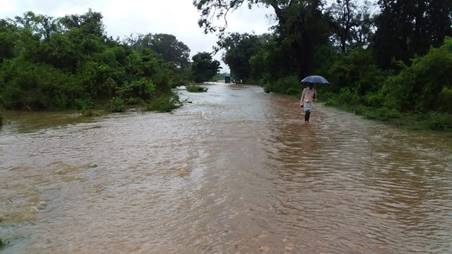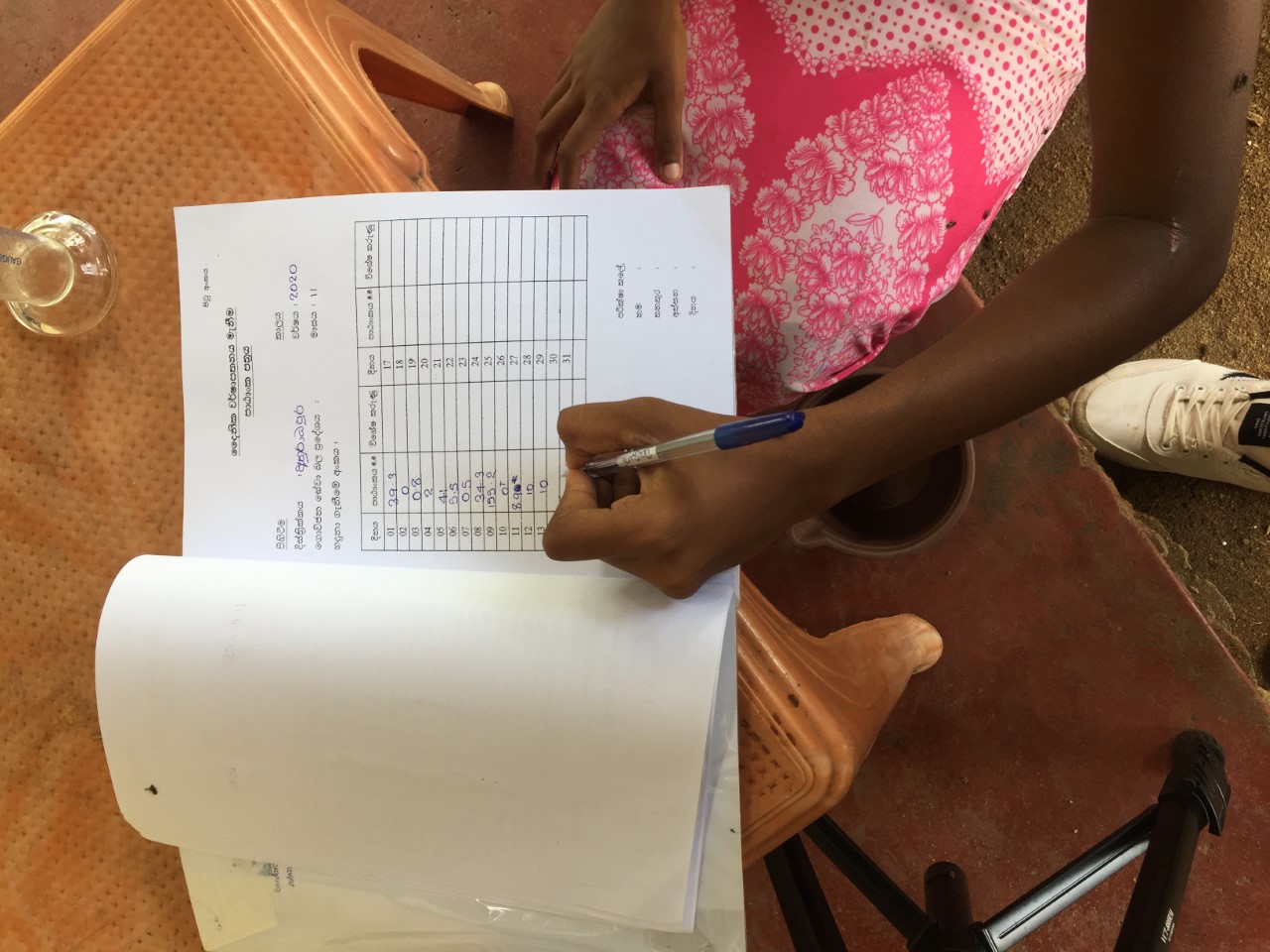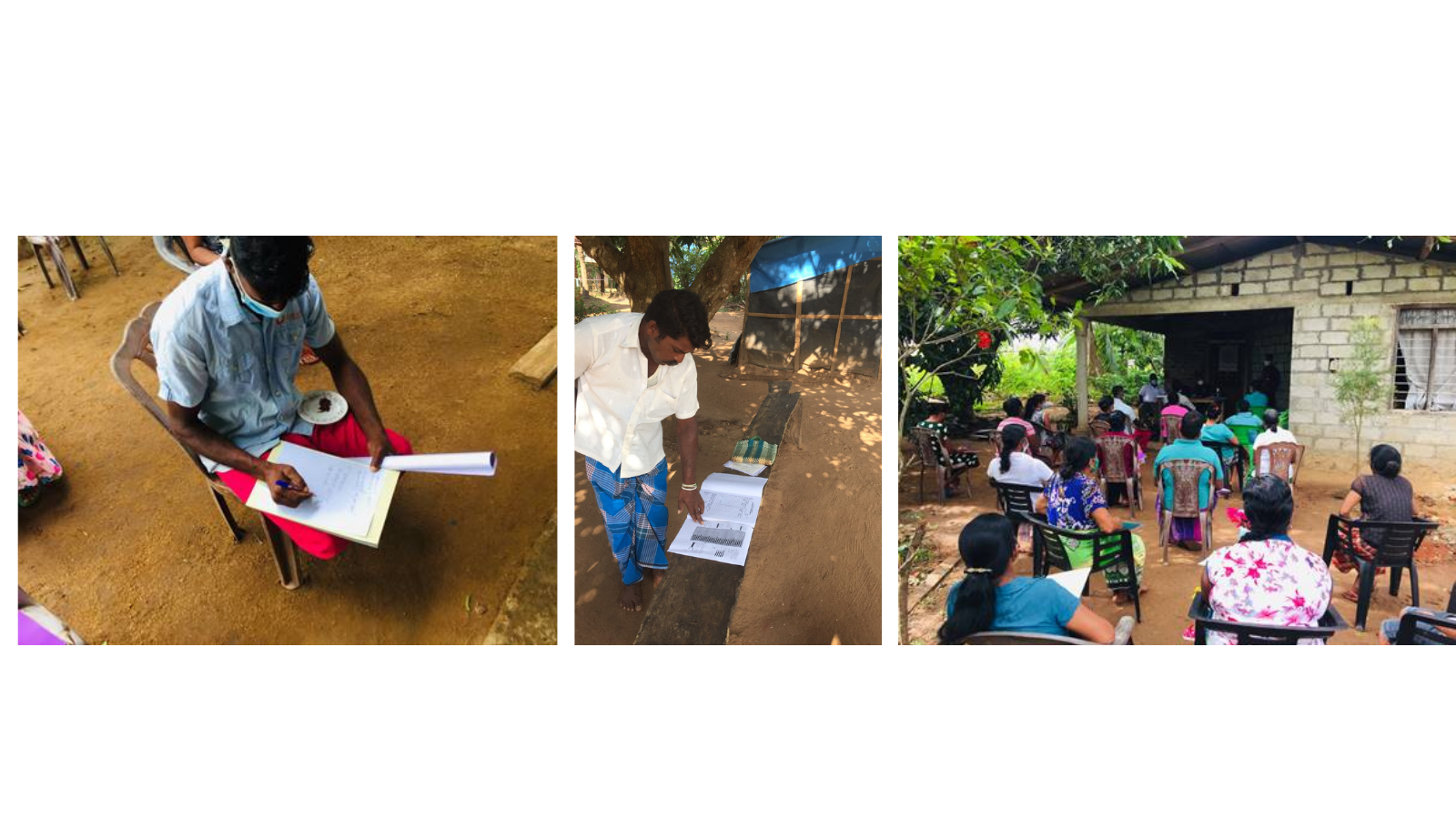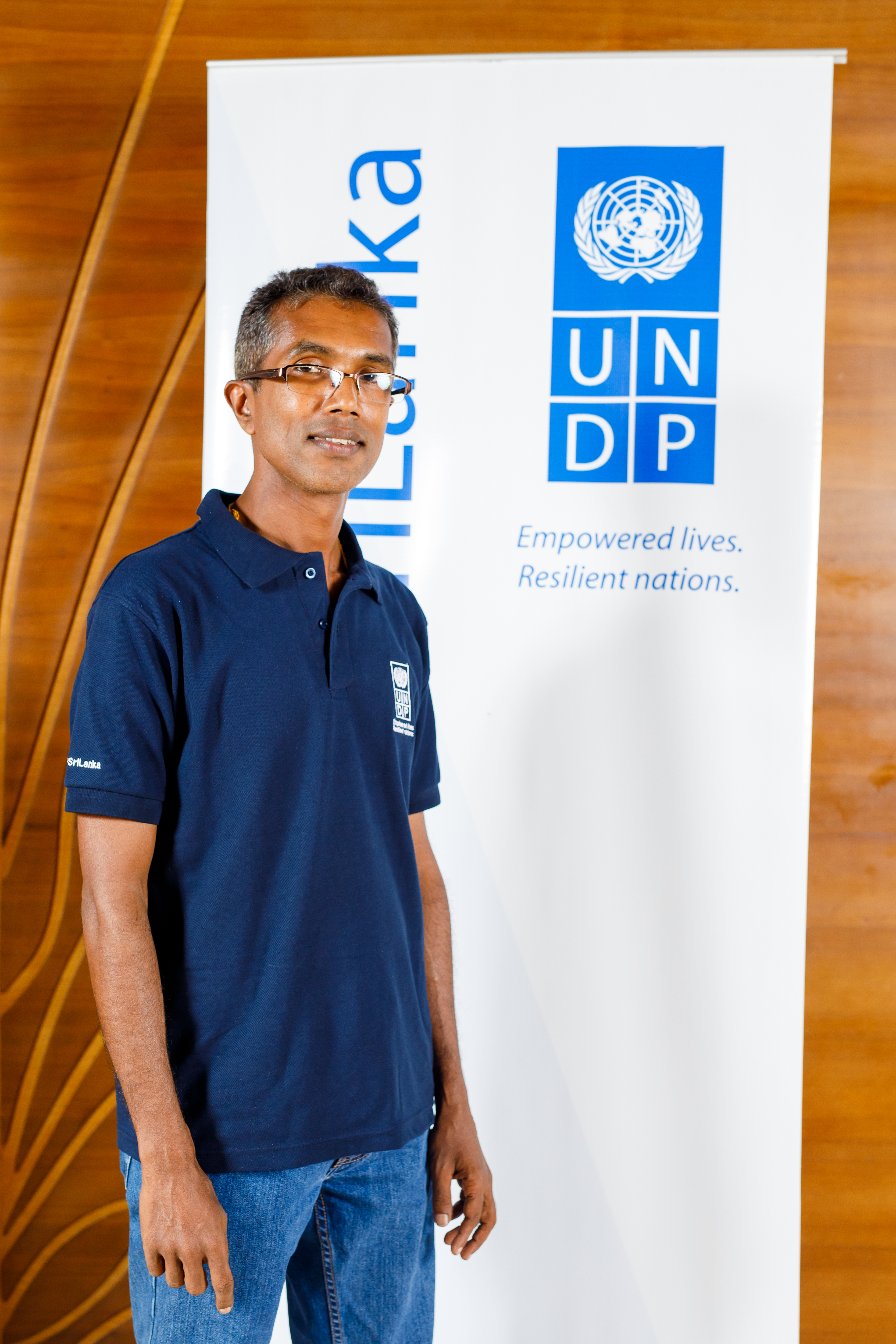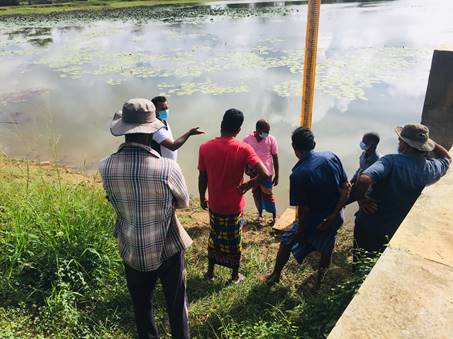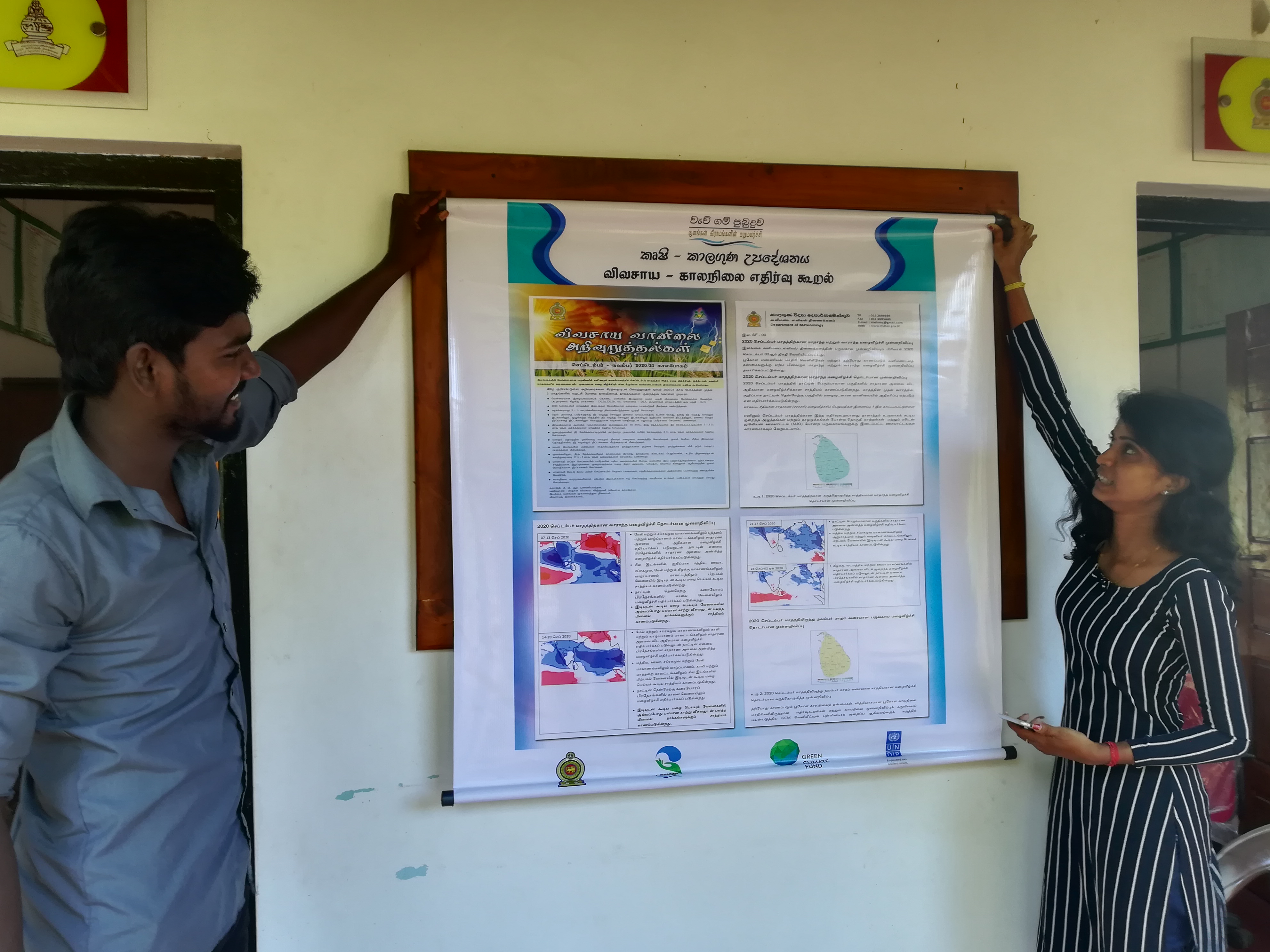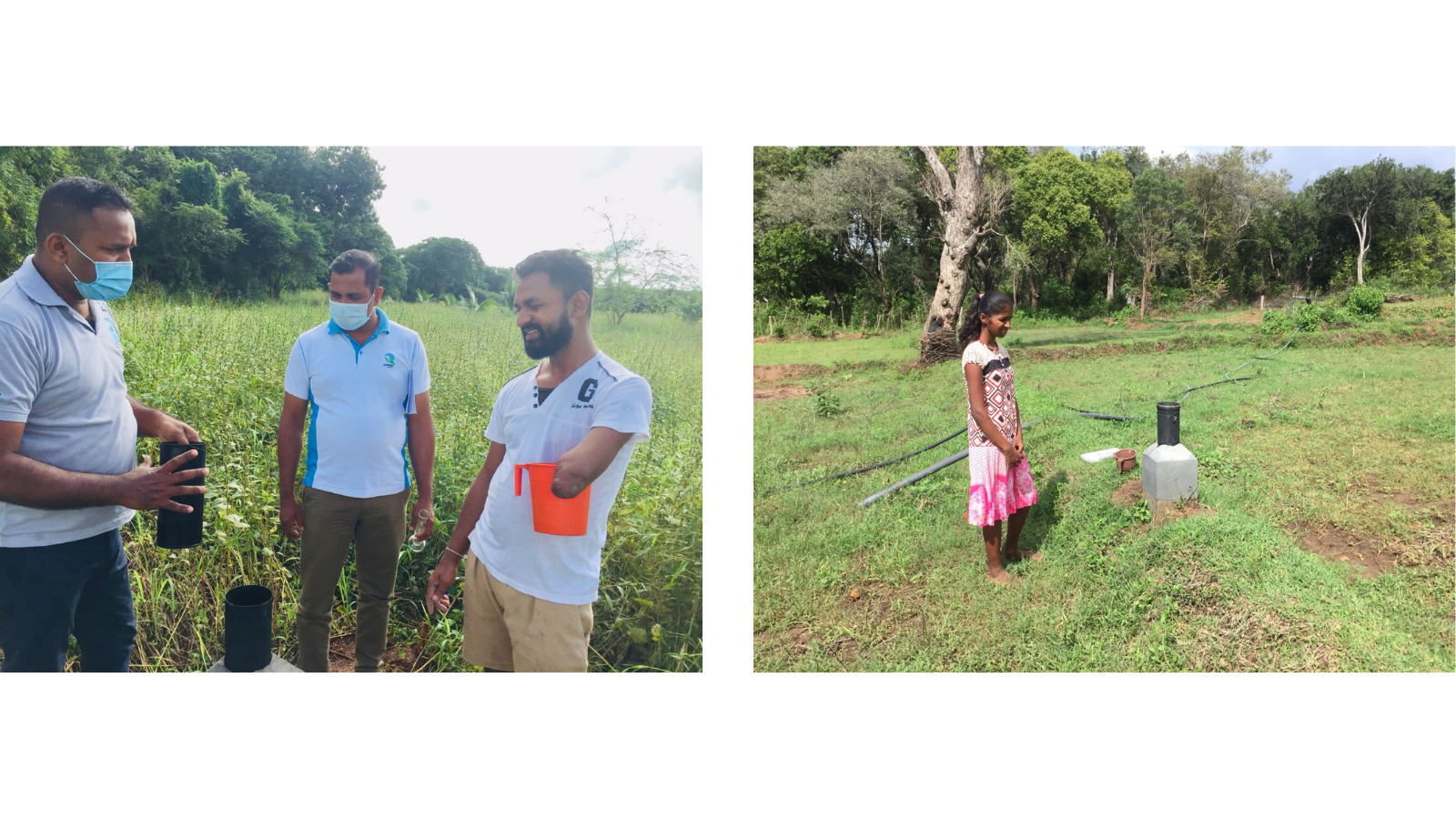Increasing Livelihood Resilience & Adapting to Climate Change
Early Warning Systems
September 21, 2021
"We have been doing home gardening over the past few years with little success. We didn’t get the relevant weather information on time, so most often our efforts would be in vain, as rains or droughts would wash it all away. This is our main source of earning a living, to put food on the table for the family..."
For Mrs. M. Rani, a home gardener and many other farmers living in and around the Dry Zone of Sri Lanka, this is their story.
Traditional agricultural practices
Sustainable living centred around our environment has been at the core of Sri Lanka’s history, with our ancestors having a symbiotic relationship with the environment. For instance, farmers depended on natural phenomena to predict the weather to inform their agricultural practices and decisions, while the nesting of Baya Weavers (Wadu Kurulla) and Quails (Watu Kurulla) forecasted the levels of rainfall, with nests built at lower levels indicating lower levels of rainfall. Farmers also adapted sowing to align with the monsoonal seasons while creating innovative water-harvesting and management systems to ensure the availability of water throughout the year for farming, everyday life, and the sustenance of the environment.
Weather unpredictability
However, today, with climate change, the weather has become more unpredictable, and farmers are unable to rely on traditional and indigenous knowledge in their decision-making.
Over the past two decades, Sri Lanka has been experiencing significant changes in temperature and rainfall, with severe monsoon rains and flooding, with extended periods of drought and water scarcity. Some studies indicate that while rainfall during the Northeast monsoon has reduced, rainfall variability has increased, affecting the agriculture sector in the dry zone. More recently, the Global Climate Risk Index ranked Sri Lanka within the top ten countries most affected by extreme weather events in 2018, 2019 and 2020. The Sixth Assessment Report from the Intergovernmental Panel on Climate Change (IPCC) outlines human activity has ‘unequivocally’ changed the earth’s climate, impacting every region across the globe. With direct impacts of climate change to worsen, the Report projects increased monsoon precipitation in the mid to long-term, particularly over South Asia, with high confidence. This means unpredictably intense rainfall and devastating flooding lie in store for the dry zone farmers of the island.
Threatening Lives and Livelihoods
As extreme weather events become increasingly common, the first knock-on effect is felt by the most vulnerable, threatening their lives and livelihoods. Farmers are faced with untenable conditions that could ruin their crops or greatly diminish their yields, compounded by other issues including increasing costs of production, environmental degradation and even the human-elephant conflict. Farmers in Sri Lanka’s dry zone are noted to be more sensitive to climate change due to land degradation and the heavy reliance on agriculture production. Recurrent hydrological disasters have further eroded the productivity of farmlands, with soil erosion from heavy rainfall leading to soil infertility on one hand, and on the other, causing water siltation in reservoirs and higher temperatures increasing evaporation rates and reducing water productivity. This creates a vicious cycle that ultimately reduces the coping capacity of these communities, making them even more incapable of planning for and overcoming climate variabilities and water scarcity.
Farmers reinvest in their cultivation, even borrowing or taking out micro-credit loans in preparation for the next cultivation season only to suffer major losses that catapult them into further poverty. Being unarmed against weather fluctuations, they are unable to plan with certainty and face the danger of falling into a poverty trap, if their harvest fails. If farmers, being the primary food producers, are unable to adapt sustainably, it will not only severely affect the food and nutritional security of the country but eventually the domestic economy, as well.
Access to early warning systems for all
A key adaptation measure to reduce adverse impacts and build the resilience of these communities and their livelihoods is access to locale-specific, reliable, timely and user-friendly climatic and weather information. Early warning systems are a strategic building block to cope with and adapt to climate change. These advisories will help farmers to adjust cultivation practices and crop rotations to tailored seasonal forecasting impacts, preventing disruptions to cultivation, while also increasing farmers’ understanding of climate change and its impacts. Early warning systems will also help enhance food security, allowing Governments to monitor weather changes, efficiently allocate resources and prepare for food emergencies. Access to advisories and early warnings have been identified as a long-felt need by farmers and at-risk communities in agricultural and water management planning in Sri Lanka.
The Climate Resilient Integrated Water Management Project (CRIWMP) implemented by the United Nations Development Programme (UNDP) in Sri Lanka together with the Government of Sri Lanka and funded by the Green Climate Fund (GCF), seeks to address this need by establishing an effective and efficient integrated weather and agrometeorological information system. This system provides accurate and timely, weather and agriculture advisories, response plans and water management options to farmers and local decision-makers in three river basins – Malwathu, Mi, and Yan (rivers), ensuring no one is left behind.
The project builds on an existing early warning dissemination system, where the Department of Meteorology prepares seasonal weather forecasts and based on these forecasts, the Natural Resource Management Centre develops Agro Met advisories for the key agricultural seasons – Yala and Maha. These advisories are disseminated to district and divisional level field officers through the Provincial Agriculture Department and the Department of Agrarian Development who circulate this information to the farming community mainly at cultivation planning meetings. Officers receive updates via multiple channels including social media platforms (WhatsApp and Facebook) and in turn communicate these to farmers. Regional radio programmes and YouTube channels are also used to disseminate these messages.
A mobile application is currently being developed to further improve accessibility to information for the sub-national and local levels. The development of this app is particularly timely, given COVID-19 travel restrictions limiting officers from directly engaging with farmers.
Vajira Hettige, Technical Coordinator at UNDP Sri Lanka noted, “Early warning and forecasting systems play a pivotal role in reducing and responding to climate risks, not only in the agricultural sector, which allows farmers to plan and manage their cultivation with changing weather patterns but also for other climate-sensitive sectors in the country. It is crucial that such systems are upscaled and implemented in other economic sectors to strengthen the sectoral adaptive capacity”.
Adopting to weather changes
CRIWMP has facilitated information flow from national agencies to grassroot levels by providing technical and human capacity building support to manage responses to seasonal weather changes. Forecasts and advisories were provided to 40 Agrarian Service Centers in 7 project districts (Puttalam, Kurunegala, Vavuniya and Anuradhapura, Trincomalee and Polonnaruwa) during 2020. Based on the Agro Met advisory provided during the last Maha season, farmers responded to limited rains by adopting dryland preparation practices and adjusting their planting period. Some farmers even shifted to cultivating short term paddy varieties and other field crops.
For Mrs. M. Rani, this has now been life changing for her home garden in Sampalthoddam, Vavuniya. “We receive weather forecasts through the CRIWMP intervention now, and it has helped improve our gardens. I wanted to share my experience, so people are encouraged to use this system and reduce challenges they face from climate change”.
Farmers like Mr. S Kanthasamy, Secretary of a Farmer Organization in Neriyakulam, Vavuniya also share the positive impacts felt by the community. “We have been cultivating paddy in our village based on weather information for many years. Before this project, we didn’t receive any information during the cultivation period and faced many challenges due to sudden rainfall and drought. This information has been very useful for increasing the productivity of our harvests”.
In the Puttalam Tabbowa Major Irrigation Scheme, farmers successfully used 10-day forecasts issued by the Department of Meteorology to plan their harvesting activities in the March season, resulting in a reduction in crop losses. In the Kurunegala Mamunugama Cascade (Athaudagama Tank), 27 paddy farmers used rainfall forecasts to extend irrigation water by 3 days, thereby, saving tank water and better managing irrigation water during the Yala/Dry season.
Resilience of smallholder farmers
CRIWMP aims to strengthen the resilience of smallholder farmers in the dry zone from climate variability and extreme events through integrated approaches to water management. The project upgraded to 264 climate-vulnerable tank cascading systems, 31 anicuts, and catchment areas. The project also developed the adaptive capacity of smallholder farmers by encouraging climate-smart agricultural practices while enabling year-round access to drinking water through the management of the cascade systems informed by climate information services. This pilot project offers lessons and case studies on scaling up of such systems at the national level for other climate-sensitive sectors.
Projected impacts from climate change are expected to only worsen in the coming years, affecting not only the agricultural sector but also crucial economic sectors such as fisheries, tourism and even the health sector. A look at the news today from around the world is a testament to this, where destructive floods and record-breaking heatwaves are ravaging wholly unprepared communities. Based on the lessons learned from this project, UNDP hopes to further strengthen weather advisory, early warning and disaster preparedness systems and support in mainstreaming them into other climate-sensitive sectors and regions of the country. User-friendly climate information systems are a critical need for Sri Lanka and are steppingstones to #BuildingForwardBetter into the island’s next frontier of green development.
***

 Locations
Locations